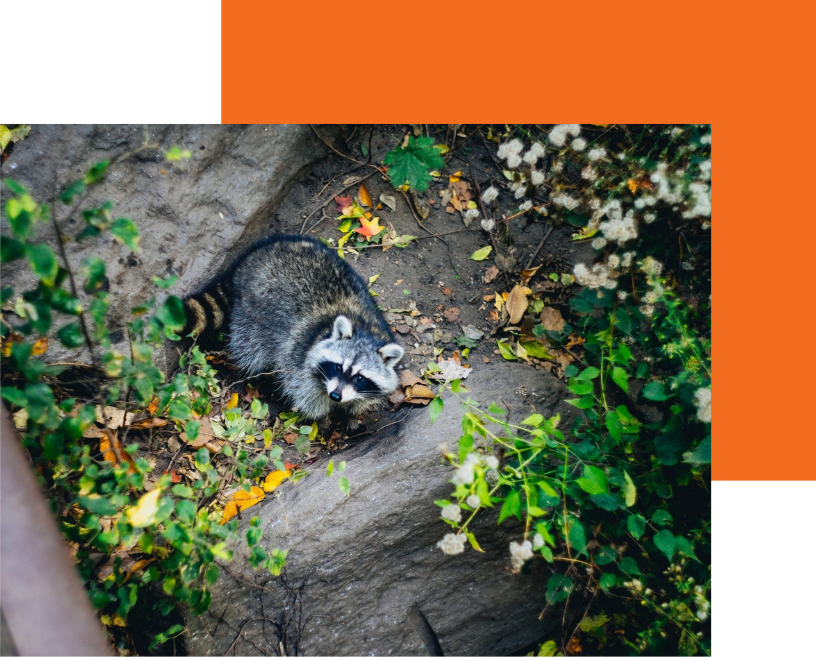Raccoons
Highly adaptable and inquisitive, raccoons are one of America’s sneakiest pests. They can sprint up to 15 mph and leap from upwards of 40 feet high without injury. Their distinctive mask is more than just a cosmetic feature. Theories abound for why dark fur encircles their eyes, including some who believe it enhances the nocturnal animals’ night vision and hunting abilities by reducing glare, like the eye-black an athlete uses. The animals themselves may use the band as a way to distinguish each other. Their cute and cuddly appearance may spark feelings of “I want one,” but they are generally too wild to domesticate.
Intelligence is a hallmark of the creatures, who have more neurons packed into their brains than other similarly sized animals. Their neuron density is similar to that of primates, which is precisely why outsmarting them can be a difficult task. They are deft with their paws; raccoons’ physical dexterity is all the more impressive when considering they lack thumbs, needing both hands for grasping objects.
Their continual search for food leads them to devour whatever they find, including what is left in garbage cans. Hence the nickname, trash panda. The fact that they can open doors and latches with their paws exacerbates the aggravation they can cause, especially when just-purchased groceries or takeout meals vanish and end up in the paws of the ubiquitous pest. Like us, they have a particular proclivity for pizza and other greasy meals. They can rapidly become a public nuisance, which is precisely why major urban centers have spent tens of millions of dollars attempting to control raccoon populations.
Between 1930s to the 1980s, populations grew twentyfold across the United States, exacerbating their presence in major urban areas and increasing their reputation as a public nuisance. Urban areas have become particularly problematic due to the widespread presence of trash, which has contributed to the exponential growth of urbanized populations. From breaking into attics to scurrying down streets, raccoons demonstrate a certain fearlessness. Seeing one is a fairly common occurrence, albeit not always a pleasant experience.
As sweet and benign as they may appear, raccoons pose several risks to humans that warrant enlisting our services to physically remove them from residences and other facilities. For starters, they can transmit infectious diseases, such as rabies, to humans. Since incidences of rabies has increased over time, it’s especially important to be vigilant. In addition, they can also carry other infectious diseases and parasites, which can adversely impact the safety humans and their pets. For instance, Baylisascaris procyonis, also known as raccoon roundworm, is a dangerous parasite that contaminates yards and causes blindness, underscoring the dangers inherent in their presence.
Fortunately, quality service is the top priority for us here at Cardinal Insect & Pest Solutions, where we have long dealt with removal of raccoons and other nuisance animals. If the masked-bandits are making an appearance on your property, please contact us to learn more about how our services can help your residence remain raccoon-free. Call today for a free estimate.


